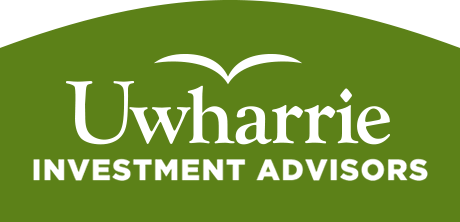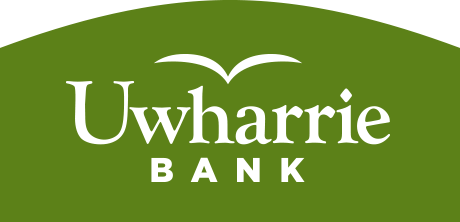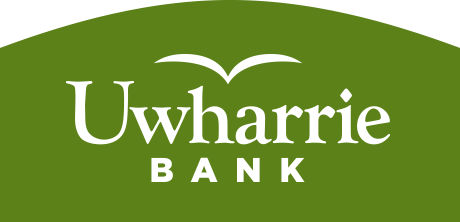Our local professionals offer independent investment advice, financial planning, insurance underwriting and investment portfolio management. Some of our professionals have attained specific professional designations. Learn more about some of these designations.
- Accredited Investment Fiduciary (AIF®)
- Certified Financial Planner™ (CFP®)
- Certified Investment Management Analyst (CIMA®)
- Certified Investment Management Consultant (CIMC®)
- Chartered Financial Consultant (ChFC®)
- Chartered Life Underwriter® (CLU®)
Accredited Investment Fiduciary (AIF®)
The Accredited Investment Fiduciary designation is currently offered and recognized by the Center for Fiduciary Studies. To obtain this designation, a candidate must meet a point-based threshold based on a combination of education, relevant industry experience, or professional development. In addition, a candidate must complete either a web-based or a capstone program, complete a proctored closed book final certification exam, and complete at least 6 hours of continuing education requirements per year.
Certified Financial Planner™ (CFP®)
Some of our professionals are certified for financial planning services in the United States by Certified Financial Planner Board of Standards, Inc. (CFP Board). The CFP® certification is voluntary. No federal or state law or regulation requires financial planners to hold the CFP® certification. You may find more information about the CFP® certification at www.cfp.net. CFP® professionals have met CFP Board’s high standards for education, examination, experience, and ethics.
To become a CFP® professional, an individual must fulfill the following requirements:
- Education – Earn a bachelor’s degree or higher from an accredited college or university and complete CFP Board-approved coursework at a college or university through a CFP Board Registered Program. The coursework covers the financial planning subject areas CFP Board has determined are necessary for the competent and professional delivery of financial planning services, as well as a comprehensive financial plan development capstone course. A candidate may satisfy some of the coursework requirement through other qualifying credentials.
- Examination – Pass the comprehensive CFP® Certification Examination. The examination is designed to assess an individual’s ability to integrate and apply a broad base of financial planning knowledge in the context of real-life financial planning situations.
- Experience – Complete 6,000 hours of professional experience related to the personal financial planning process, or 4,000 hours of apprenticeship experience that meets additional requirements.
- Ethics – Satisfy the Fitness Standards for Candidates for CFP® Certification and Former CFP® Professionals Seeking Reinstatement and agree to be bound by CFP Board’s Code of Ethics and Standards of Conduct (“Code and Standards”), which sets forth the ethical and practice standards for CFP® professionals.
Individuals who become certified must complete the following ongoing education and ethics requirements to remain certified and maintain the right to continue to use the CFP Board Certification Marks:
- Ethics – Commit to complying with CFP Board’s Code and Standards. This includes a commitment to CFP Board, as part of the certification, to act as a fiduciary, and therefore, act in the best interests of the client, at all times when providing financial advice and financial planning. CFP Board may sanction a CFP® professional who does not abide by this commitment, but CFP Board does not guarantee a CFP® professional’s services. A client who seeks a similar commitment should obtain a written engagement that includes a fiduciary obligation to the client.
- Continuing Education – Complete 30 hours of continuing education every two years to maintain competence, demonstrate specified levels of knowledge, skills, and abilities, and keep up with developments in financial planning. Two of the hours must address the Code and Standards.
Certified Investment Management Analyst (CIMA®)
The CIMA® license belongs to an elite few in the investment profession. Awarded by the Investments & Wealth Institute (formerly IMCA), it represents a high level of credibility, integrity, and most importantly, knowledge. The curriculum involves in-depth coverage of such topics as asset allocation, ethics, due diligence, risk measurement, performance measurement and investment objectives. CIMA® licensees must succeed in a rigorous academic program and maintain their credential through extensive continuing education.
Certified Investment Management Consultant (CIMC®)
An investment management consultant who successfully completed Level I and Level II of the Institute for Certified Investment Management Consultants’ (now part of I&WI) education program including the FINRA-administered exams for each level. In earning the CIMC® designation, the investment consultant has demonstrated extensive knowledge of managed accounts including modern portfolio theory, the development of investment policy statements, asset allocation, due diligence, and performance monitoring. In addition, the consultant was tested on legal issues and ethical obligations faced by investment advisors.
Chartered Financial Consultant (ChFC®)
Chartered Financial Consultant® is a professional certification granted in the United States by The American College for Financial Services. The ChFC® certification is a voluntary certification; no federal or state law or regulation requires financial planners to hold ChFC® certification. Currently, more than 48,000 individuals have been awarded ChFC® certification.
The ChFC® designation is financial planning’s highest standard of knowledge and trust. The ChFC® designation allows an advisor to meet the advanced financial planning needs of individuals, professionals, and small business owners. The information covered during this course consists of in-depth coverage of the key financial planning disciplines, including insurance, income taxation, retirement planning, investments, and estate planning.
To receive the ChFC® designation, an individual must satisfactorily fulfill the following requirements:
- Education – Successfully complete required courses and electives in the ChFC® program.
- Experience – Complete at least three years of full-time financial planning-related experience (or the equivalent, measured as 2,000 hours per year).
- Code of Ethics – Agree to be bound by the Code of Ethics which includes the Professional Pledge and eight Canons.
- Professional Pledge
“In all my professional relationships, I pledge myself to the following rule of ethical conduct: I shall, in light of all conditions surrounding those I serve, which I shall make every conscientious effort to ascertain and understand, render that service which, in the same circumstances, I would apply to myself.”
- The Canons
- Conduct yourself at all times with honor and dignity.
- Avoid practices that would bring dishonor upon your profession or The American College.
- Publicize your achievements in ways that enhance the integrity of your profession.
- Continue your studies throughout your working life so as to maintain a high level of professional competence.
- Do your utmost to attain a distinguished record of professional service.
- Support the established institutions and organizations concerned with the integrity of your profession.
- Participate in building your profession by encouraging and providing appropriate assistance to qualified persons pursuing professional studies.
- Comply with all laws and regulations, particularly as they relate to professional and business activities.
Individuals who receive the ChFC® designation and wish to continue to use the designation need to complete 30 hours continuing education of every two years to maintain competence and keep up with developments in the financial planning field.
Chartered Life Underwriter® (CLU®)
The CLU is a professional designation for individuals who wish to specialize in life insurance and estate planning. Individuals must complete five core courses and three elective courses, and successfully pass all eight two-hour, 100-question examinations in order to receive the designation.
Advisory products and services are offered by Investment Advisory Representatives through Uwharrie Investment Advisors, a Registered Investment Advisor and subsidiary of Uwharrie Capital Corp and an affiliate of Uwharrie Bank.
Retail brokerage and insurance products are offered by Registered Representatives through Private Client Services, LLC. FINRA and SIPC member. Private Client Services and Uwharrie Capital Corp along with its affiliates and/or subsidiaries are separate, distinct, and unaffiliated entities. It is important to note that the securities and insurance offered are: NOT BANK DEPOSITS AND NOT INSURED BY THE FDIC OR ANY FEDERAL GOVERNMENT AGENCY – NOT OBLIGATIONS OF OR GUARANTEED BY ANY FINANCIAL INSTITUTION – SUBJECT TO RISK AND MAY LOSE VALUE. Risk(s) will vary depending on investment made by the client. A Uwharrie Investment Advisor Representative will review these risk(s) with the client prior to investing.
Customer Disclosures and Client Relationship Summary (Form CRS)




